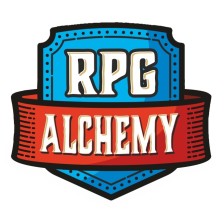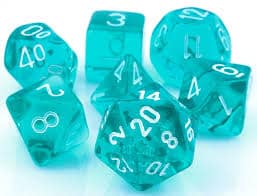The other day I was reading an interesting survey/questionnaire over at Venger’s Old School Gaming Blog. The questions were all directed at gamemasters and basically our level of satisfaction with the GM experience. The last question on the survey really got me thinking; “How long, generally, before you start to feel GM burnout?” I know we’ve all been there. There are plenty of times in the past in which I could feel it coming on.��A lot of gamemasters recommend switching games or letting someone else take the GM’s reins for a while. Those are both fine cures for the problem but I’m a firm believer in the philosophy of “an ounce of prevention being worth a pound of cure.” Here’s a look at a few things I do��in order��to prevent my own GM burnout:
Avoiding Campaign “Over-design”
This first one is something that always seems difficult for me to do. I love designing rich settings and exciting plot lines but this can contribute to burnout. Sometimes as a GM you’ve spent so much time crafting the plot that by the time you actually run the game it can feel like a rerun. This can get to the point where you lose interest in the campaign because as the GM you’ve already gone through this adventure. The easiest way I’ve found to combat this is by moving around my campaign design priorities.
These days when I’m working on a campaign I place my energy and focus into crafting an exciting setting and interesting NPCs. Instead of scripting out specific story lines��I focus on a variety of plot elements that are just defined enough for me to be able to insert into the campaign when the opportunity presents itself. This allows me to vent my creativity by putting my energy into setting elements and NPCs while running a game that is always fresh and exciting for me. Which brings me to my next point:
Embracing the Unexpected
For me a big part of avoiding burnout is for every session to be fresh and exciting. We all know that players can throw even the best plot lines into total disarray. So instead of struggling to keep the players on track, I focus on rolling with their actions and staying just ahead of them. My prep work rarely extends beyond a couple of ideas for the next session. I take a few ideas and obstacles and throw them in the characters’ way and see what happens. This keeps me engaged and exciting every week to see what direction things will go. These days when I sit down to play I’m as excited as the players to see what unfolds in this week’s exciting adventure.
Playing With NPCs
As GMs it usually feels like we are running the game instead of playing the game. Being a referee can be fatiguing and can definitely contribute to burnout. I fight this by the way I use my NPCs. I create personalities and back story and list a few notes on their goals and objectives. I don’t determine ahead of time what my NPCs do; I let the heroes do the things they want to do and then I get to play how my NPCs, especially my antagonists, react. This may not seem a lot different from what we already do as GMs, but thinking in terms of getting to play your NPCs can be refreshing and exciting. I would just caution you to make sure your NPCs don’t steal the spotlight from the PCs.
Promoting Communication Beyond the Table
One of the things that keeps me actively engaged in the game week after week is the players’ excitement and enthusiasm which directly impacts my own. Keeping the energy level up between sessions can be tough, what with jobs, family, and commitment. I’ve found that keeping in touch with the players between sessions, and encouraging them to communicate with each other, really helps motivate and build excitement for our next session. It’s a great opportunity to communicate a whole variety of information; characters new abilities, individual��goals, even group strategies. It’s also a great opportunity for me to see which campaign elements are resonating with the players and get some feedback on the campaign in general.
Focusing on the Players
For me the thing that helps me avoid burnout the most is keeping the focus on the players. My enjoyment of the game is always directly tied to my players’ enjoyment. GMing is usually��a selfless act and it’s important to remember that our focus should always be on the players. It’s not always an easy thing to do but basing your gaming priorities around providing a fun, exciting, and memorable session, and then seeing the players have a great time, goes along way to keeping your own excitement��up.
Planning for the End
I have been guilty a number of times of letting a campaign just fizzle out. The last couple of campaigns I’ve run I have specifically thought about the campaign’s end. I don’t script out the ending or force any particular direction on the characters, but I do think about the end in conceptual terms. Near the start of the campaign I like the players and I to come up with several questions that we want to answer throughout the course of the campaign. We like to come up with at least one question about each character, a couple of questions about the setting, and then of course I throw in a couple of questions. The understanding at the table is that answering these questions pushes us closer to the campaign’s end. Sometimes new questions are added or old ones modified, but everyone at the table knows that the campaign is about finding answers to these questions and when they are answered the campaign will be in its final chapter. ��Doing this has gone a long way to making our campaigns end in an epic climax instead of just fading away.
Final Thoughts
GM burnout can ruin the best of campaigns and most of us have suffered from it at one time or another. Hopefully some of the advice here can help you avoid burnout and maintain the fire that got you to get behind the screen in the first place. If you have any other ideas or suggestions for our readers please share them below. Until next time.



Great suggestions! We have similar views on Game Mastering. ������
Venger Satanis recently posted…Story Map
Thank you sir. I’ve enjoyed your blog as well.
John Lewis recently posted…This Week In Roleplaying – March 27th, 2015
Great article! I’m in the middle of an awesome dark ages vampire game, but I’ve been concerned that I might burn out before we get to its conclusion. I found your suggestion to write detailed NPCs, not obsessively script events, especially helpful. I also really liked your idea on how to reach the endgame. Good stuff!
Glad to be of help. I’ve had way to many campaigns sputter and die without reaching a solid, satisfying conclusion. These days I try to start thinking about the end right from the beginning!